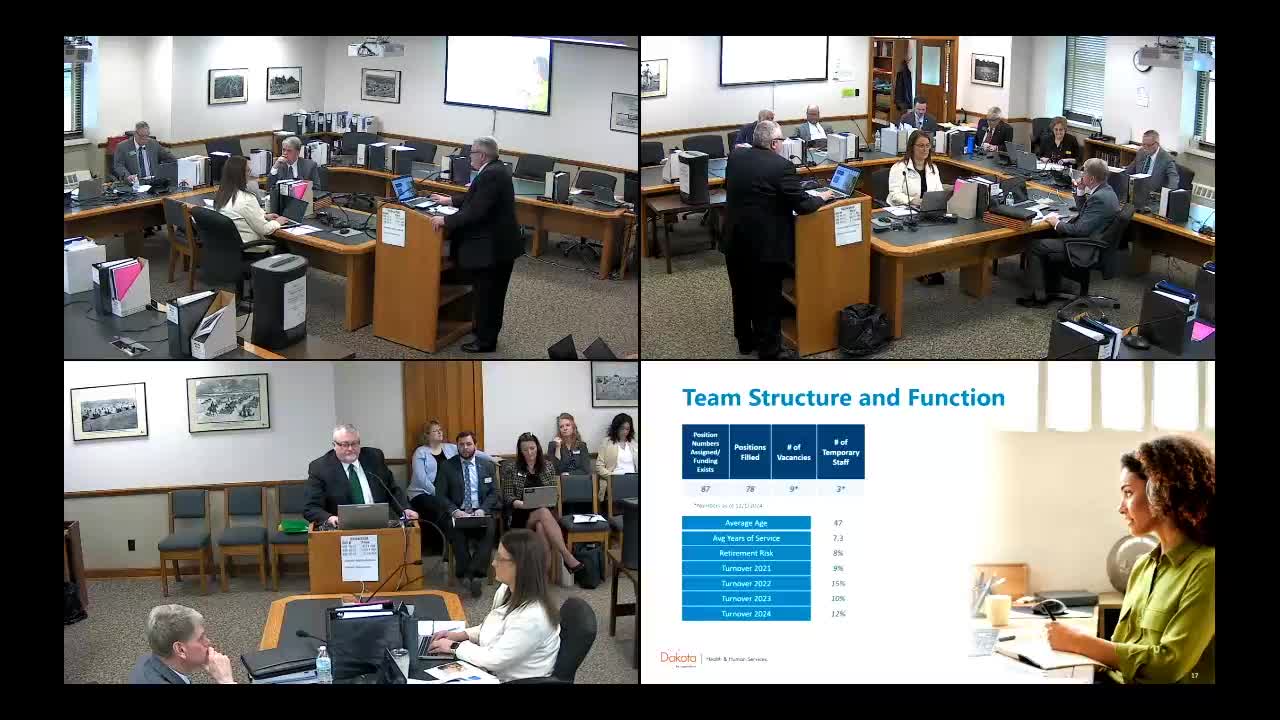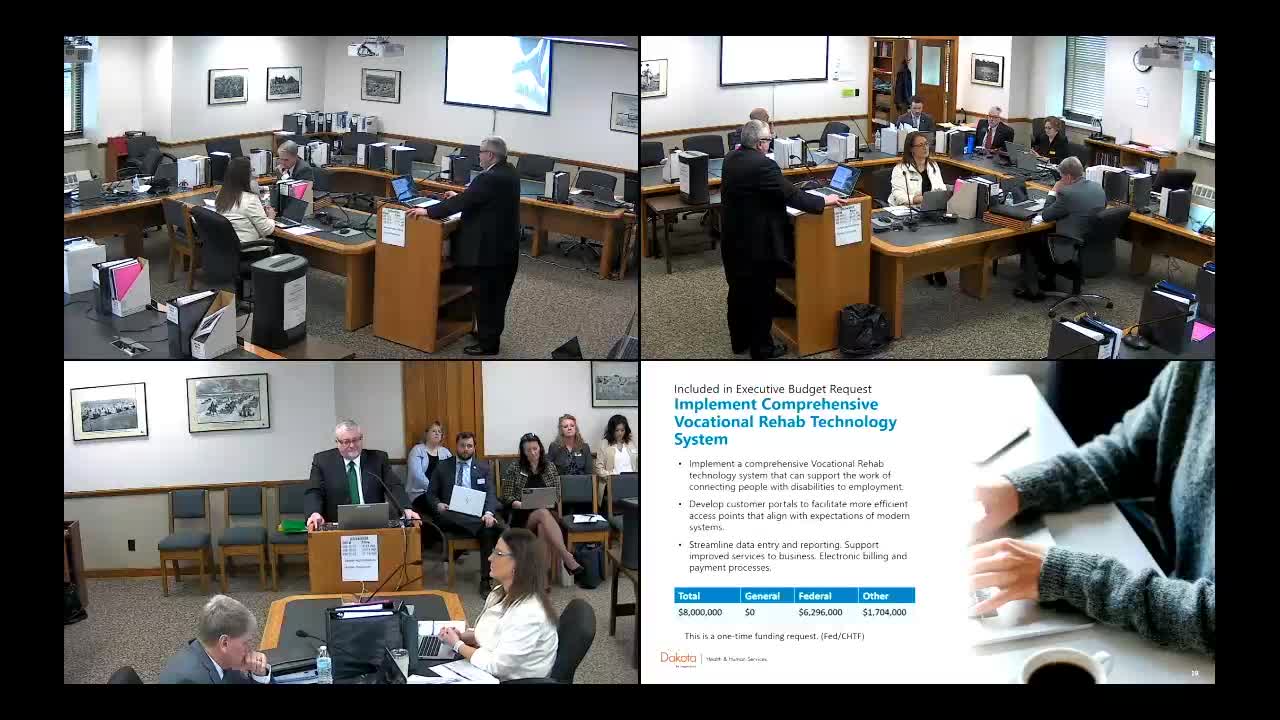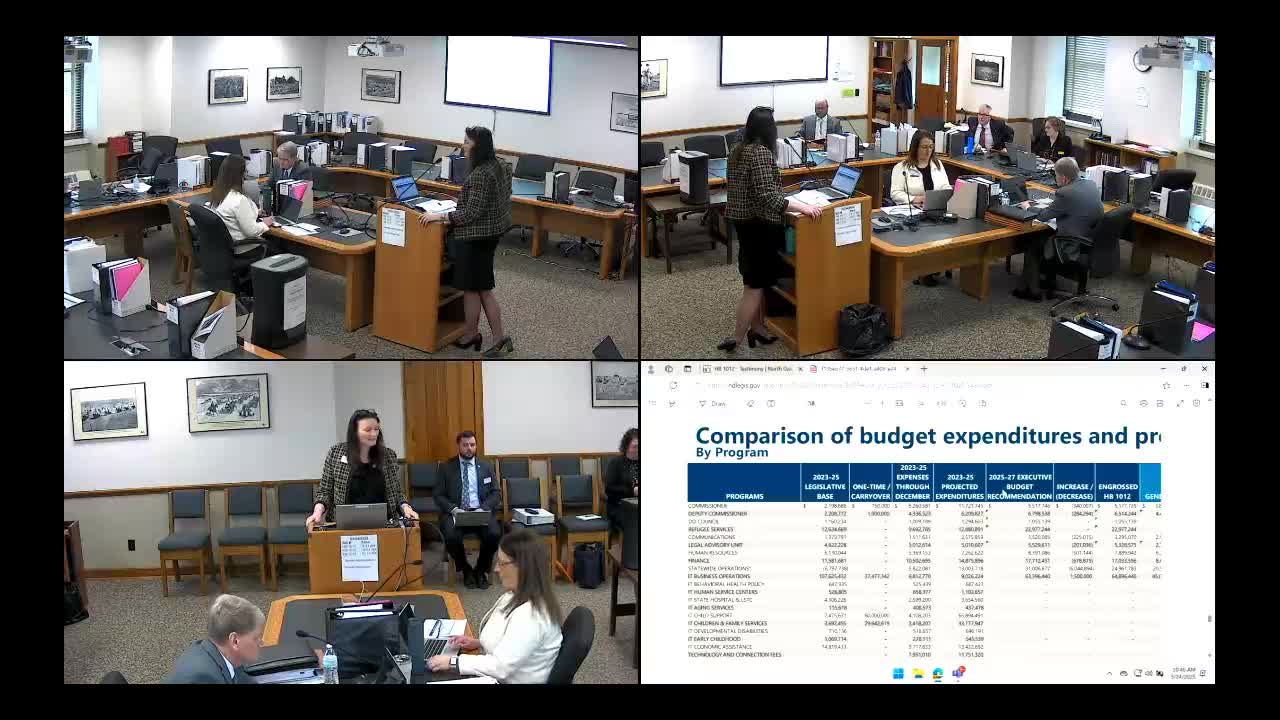Article not found
This article is no longer available. But don't worry—we've gathered other articles that discuss the same topic.

Vocational Rehabilitation director warns of capped federal grant and rising caseloads; department explores $8 million IT upgrade

Child support director tells Senate subcommittee progress continues on $60 million IT replacement; collections at record high

